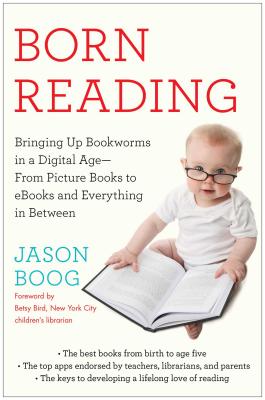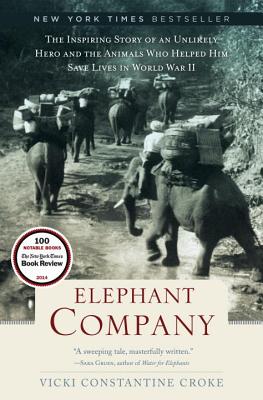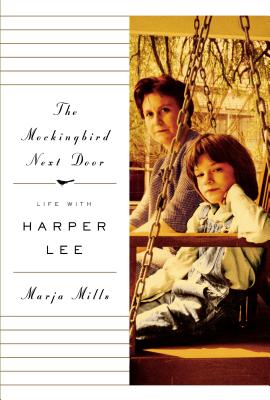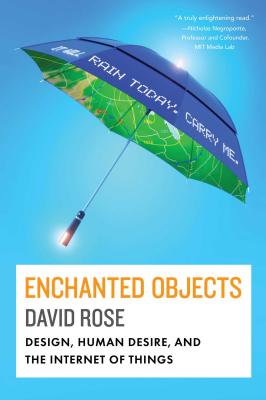A program for parents and professionals on how to raise kids who love to read, featuring interviews with childhood development experts, advice from librarians, tips from authors and children's book publishers, and reading recommendations for kids from birth up to age five.
Every parent wants to give his or her child a competitive advantage. In Born Reading, publishing insider (and new dad) Jason Boog explains how that can be as simple as opening a book. Studies have shown that interactive reading--a method that creates dialogue as you read together--can raise a child's IQ by more than six points. In fact, interactive reading can have just as much of a determining factor on a child's IQ as vitamins and a healthy diet. But there's no book that takes the cutting-edge research on interactive reading and shows parents, teachers, and librarians how to apply it to their day-to-day lives with kids, until now.
Born Reading provides step-by-step instructions on interactive reading and advice for developing your child's interest in books from the time they are born. Boog has done the research, talked with the leading experts in child development, and worked with them to compile the "Born Reading Essential Books" lists, offering specific titles tailored to the interests and passions of kids from birth to age five. But reading can take many forms--print books as well as ebooks and apps--and Born Reading also includes tips on how to use technology the right way to help (not hinder) your child's intellectual development. Parents will find advice on which educational apps best supplement their child's development, when to start introducing digital reading to their child, and how to use tech to help create the readers of tomorrow.
Born Reading will show anyone who loves kids how to make sure the children they care about are building a powerful foundation in literacy from the beginning of life.
The remarkable story of James Howard “Billy” Williams, whose uncanny rapport with the world’s largest land animals transformed him from a carefree young man into the charismatic war hero known as Elephant Bill
Billy Williams came to colonial Burma in 1920, fresh from service in World War I, to a job as a “forest man” for a British teak company. Mesmerized by the intelligence, character, and even humor of the great animals who hauled logs through the remote jungles, he became a gifted “elephant wallah.” Increasingly skilled at treating their illnesses and injuries, he also championed more humane treatment for them, even establishing an elephant “school” and “hospital.” In return, he said, the elephants made him a better man. The friendship of one magnificent tusker in particular, Bandoola, would be revelatory. In Elephant Company, Vicki Constantine Croke chronicles Williams’s growing love for elephants as the animals provide him lessons in courage, trust, and gratitude.
But Elephant Company is also a tale of war and daring. When Imperial Japanese forces invaded Burma in 1942, Williams joined the elite Force 136, the British dirty tricks department, operating behind enemy lines. His war elephants would carry supplies, build bridges, and transport the sick and elderly over treacherous mountain terrain. Now well versed in the ways of the jungle, an older, wiser Williams even added to his stable by smuggling more elephants out of Japanese-held territory. As the occupying authorities put a price on his head, Williams and his elephants faced his most perilous test. In a Hollywood-worthy climax, Elephant Company, cornered by the enemy, attempted a desperate escape: a risky trek over the mountainous border to India, with a bedraggled group of refugees in tow. Elephant Bill’s exploits would earn him top military honors and the praise of famed Field Marshal Sir William Slim.
Part biography, part war epic, and part wildlife adventure, Elephant Company is an inspirational narrative that illuminates a little-known chapter in the annals of wartime heroism.
Read an excerpt HERE.
To Kill a Mockingbird by Harper Lee is one of the best loved novels of the twentieth century. But for the last fifty years, the novel’s celebrated author, Harper Lee, has said almost nothing on the record. Journalists have trekked to her hometown of Monroeville, Alabama, where Harper Lee, known to her friends as Nelle, has lived with her sister, Alice, for decades, trying and failing to get an interview with the author. But in 2001, the Lee sisters opened their door to Chicago Tribune journalist Marja Mills. It was the beginning of a long conversation—and a great friendship.
In 2004, with the Lees’ blessing, Mills moved into the house next door to the sisters. She spent the next eighteen months there, sharing coffee at McDonalds and trips to the Laundromat with Nelle, feeding the ducks and going out for catfish supper with the sisters, and exploring all over lower Alabama with the Lees’ inner circle of friends.
Nelle shared her love of history, literature, and the Southern way of life with Mills, as well as her keen sense of how journalism should be practiced. As the sisters decided to let Mills tell their story, Nelle helped make sure she was getting the story—and the South—right. Alice, the keeper of the Lee family history, shared the stories of their family.
The Mockingbird Next Door is the story of Mills’s friendship with the Lee sisters. It is a testament to the great intelligence, sharp wit, and tremendous storytelling power of these two women, especially that of Nelle.
Mills was given a rare opportunity to know Nelle Harper Lee, to be part of the Lees’ life in Alabama, and to hear them reflect on their upbringing, their corner of the Deep South, how To Kill a Mockingbird affected their lives, and why Nelle Harper Lee chose to never write another novel.
From entrepreneur and MIT Media Lab scientist, David Rose, a sweeping, optimistic vision for a future where everyday objects have been transformed into connected devices that channel our deepest human desires and improve our homes, offices, and public spaces.
David Rose believes we are now standing at the precipice of the next transformative development: the Internet of Things. Soon, connected technology will be embedded in hundreds of everyday objects we already care about and know how to use--our cars, cubicles, wallets, watches, umbrellas, even our trash cans--objects that will respond to our needs, come to know us, and even learn to think ahead on our behalf. Rose calls these devices--which are just beginning to creep into the marketplace--Enchanted Objects.
Some believe the future will look like more of the same--more smartphones, tablets and other devices, with screens embedded in every conceivable surface. Rose calls this the Terminal World--and it won't last forever. Instead, future technology will inevitably spread out, combining itself with the objects that make up the very fabric of daily living. Such technology, says Rose, can be woven into the background of our environment--enhancing human relationships, channeling desires for powers like omniscience, immortality, and creative expression, and ushering the enchanted objects of fairy tales and science fiction into real life.
Groundbreaking, timely, and provocative, David Rose has written a powerful manifesto about the way we live with technology--and a blueprint for a better future, where efficient solutions come hand in hand with technology that delights our senses. Enchanted Objects is essential reading for designers, professional and armchair technologists, entrepreneurs, and business leaders looking to stay relevant in the Internet of Things.
Every parent wants to give his or her child a competitive advantage. In Born Reading, publishing insider (and new dad) Jason Boog explains how that can be as simple as opening a book. Studies have shown that interactive reading--a method that creates dialogue as you read together--can raise a child's IQ by more than six points. In fact, interactive reading can have just as much of a determining factor on a child's IQ as vitamins and a healthy diet. But there's no book that takes the cutting-edge research on interactive reading and shows parents, teachers, and librarians how to apply it to their day-to-day lives with kids, until now.
Born Reading provides step-by-step instructions on interactive reading and advice for developing your child's interest in books from the time they are born. Boog has done the research, talked with the leading experts in child development, and worked with them to compile the "Born Reading Essential Books" lists, offering specific titles tailored to the interests and passions of kids from birth to age five. But reading can take many forms--print books as well as ebooks and apps--and Born Reading also includes tips on how to use technology the right way to help (not hinder) your child's intellectual development. Parents will find advice on which educational apps best supplement their child's development, when to start introducing digital reading to their child, and how to use tech to help create the readers of tomorrow.
Born Reading will show anyone who loves kids how to make sure the children they care about are building a powerful foundation in literacy from the beginning of life.
The remarkable story of James Howard “Billy” Williams, whose uncanny rapport with the world’s largest land animals transformed him from a carefree young man into the charismatic war hero known as Elephant Bill
Billy Williams came to colonial Burma in 1920, fresh from service in World War I, to a job as a “forest man” for a British teak company. Mesmerized by the intelligence, character, and even humor of the great animals who hauled logs through the remote jungles, he became a gifted “elephant wallah.” Increasingly skilled at treating their illnesses and injuries, he also championed more humane treatment for them, even establishing an elephant “school” and “hospital.” In return, he said, the elephants made him a better man. The friendship of one magnificent tusker in particular, Bandoola, would be revelatory. In Elephant Company, Vicki Constantine Croke chronicles Williams’s growing love for elephants as the animals provide him lessons in courage, trust, and gratitude.
But Elephant Company is also a tale of war and daring. When Imperial Japanese forces invaded Burma in 1942, Williams joined the elite Force 136, the British dirty tricks department, operating behind enemy lines. His war elephants would carry supplies, build bridges, and transport the sick and elderly over treacherous mountain terrain. Now well versed in the ways of the jungle, an older, wiser Williams even added to his stable by smuggling more elephants out of Japanese-held territory. As the occupying authorities put a price on his head, Williams and his elephants faced his most perilous test. In a Hollywood-worthy climax, Elephant Company, cornered by the enemy, attempted a desperate escape: a risky trek over the mountainous border to India, with a bedraggled group of refugees in tow. Elephant Bill’s exploits would earn him top military honors and the praise of famed Field Marshal Sir William Slim.
Part biography, part war epic, and part wildlife adventure, Elephant Company is an inspirational narrative that illuminates a little-known chapter in the annals of wartime heroism.
Read an excerpt HERE.
To Kill a Mockingbird by Harper Lee is one of the best loved novels of the twentieth century. But for the last fifty years, the novel’s celebrated author, Harper Lee, has said almost nothing on the record. Journalists have trekked to her hometown of Monroeville, Alabama, where Harper Lee, known to her friends as Nelle, has lived with her sister, Alice, for decades, trying and failing to get an interview with the author. But in 2001, the Lee sisters opened their door to Chicago Tribune journalist Marja Mills. It was the beginning of a long conversation—and a great friendship.
In 2004, with the Lees’ blessing, Mills moved into the house next door to the sisters. She spent the next eighteen months there, sharing coffee at McDonalds and trips to the Laundromat with Nelle, feeding the ducks and going out for catfish supper with the sisters, and exploring all over lower Alabama with the Lees’ inner circle of friends.
Nelle shared her love of history, literature, and the Southern way of life with Mills, as well as her keen sense of how journalism should be practiced. As the sisters decided to let Mills tell their story, Nelle helped make sure she was getting the story—and the South—right. Alice, the keeper of the Lee family history, shared the stories of their family.
The Mockingbird Next Door is the story of Mills’s friendship with the Lee sisters. It is a testament to the great intelligence, sharp wit, and tremendous storytelling power of these two women, especially that of Nelle.
Mills was given a rare opportunity to know Nelle Harper Lee, to be part of the Lees’ life in Alabama, and to hear them reflect on their upbringing, their corner of the Deep South, how To Kill a Mockingbird affected their lives, and why Nelle Harper Lee chose to never write another novel.
From entrepreneur and MIT Media Lab scientist, David Rose, a sweeping, optimistic vision for a future where everyday objects have been transformed into connected devices that channel our deepest human desires and improve our homes, offices, and public spaces.
David Rose believes we are now standing at the precipice of the next transformative development: the Internet of Things. Soon, connected technology will be embedded in hundreds of everyday objects we already care about and know how to use--our cars, cubicles, wallets, watches, umbrellas, even our trash cans--objects that will respond to our needs, come to know us, and even learn to think ahead on our behalf. Rose calls these devices--which are just beginning to creep into the marketplace--Enchanted Objects.
Some believe the future will look like more of the same--more smartphones, tablets and other devices, with screens embedded in every conceivable surface. Rose calls this the Terminal World--and it won't last forever. Instead, future technology will inevitably spread out, combining itself with the objects that make up the very fabric of daily living. Such technology, says Rose, can be woven into the background of our environment--enhancing human relationships, channeling desires for powers like omniscience, immortality, and creative expression, and ushering the enchanted objects of fairy tales and science fiction into real life.
Groundbreaking, timely, and provocative, David Rose has written a powerful manifesto about the way we live with technology--and a blueprint for a better future, where efficient solutions come hand in hand with technology that delights our senses. Enchanted Objects is essential reading for designers, professional and armchair technologists, entrepreneurs, and business leaders looking to stay relevant in the Internet of Things.




No comments:
Post a Comment